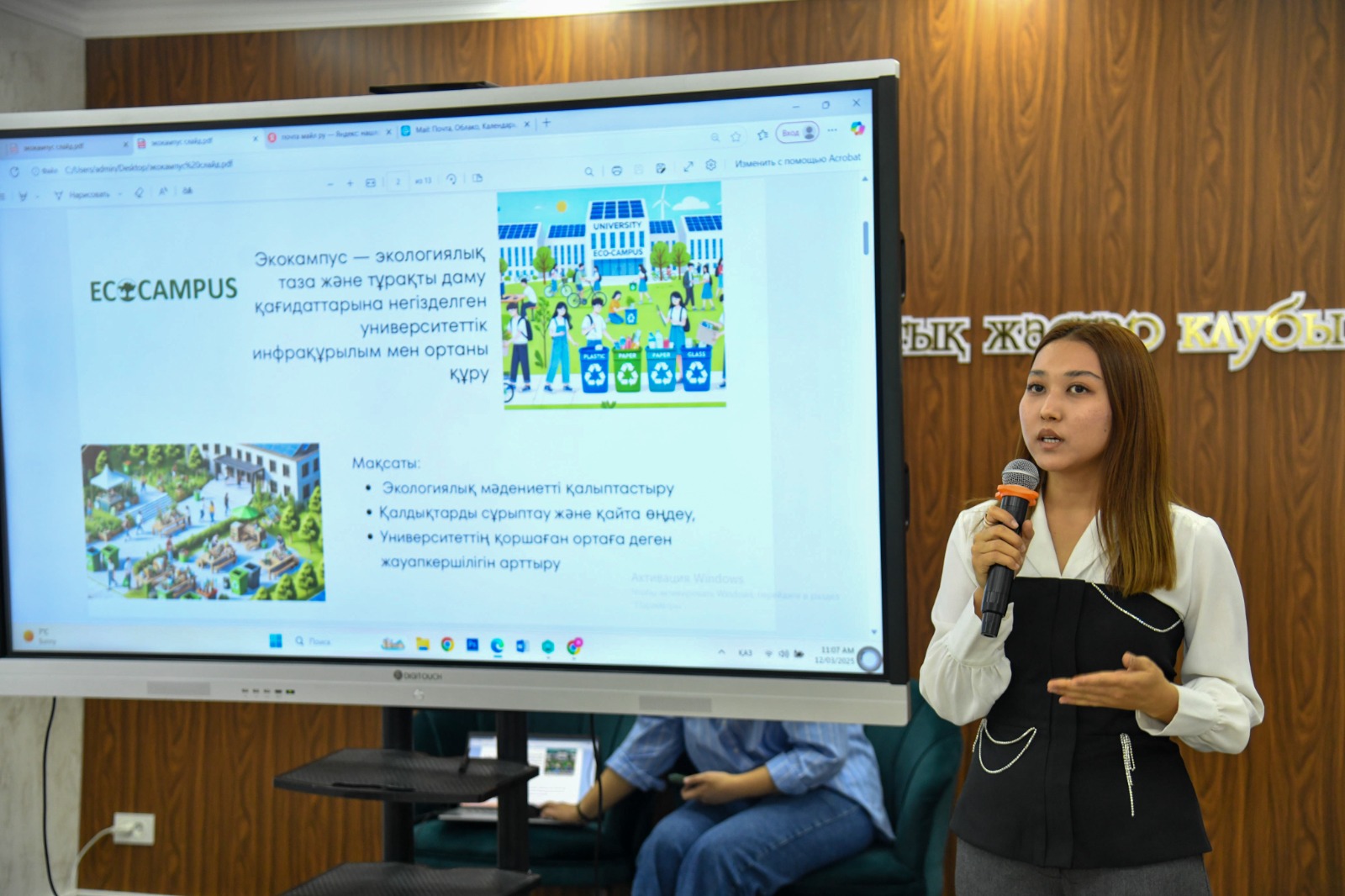
“Eco-Álem” Environmental Club Established
At Atyrau University named after Kh. Dosmukhamedov, a presentation of the “Eco-Álem” club was held in support of the nationwide “Clean Kazakhstan” campaign initiated by the President of the Republic of Kazakhstan, Kassym-Jomart Tokayev. The club is aimed at environmental protection and the development of ecological culture.
The presentation of the eco-club, which was established to promote ecological awareness in society, implement environmental projects, contribute to solving ecological issues, and support scientific research, was attended by the university administration, faculty members, students, eco-activists, and media representatives.
During the presentation, it was noted: “At Atyrau University, there used to be an eco-circle under the Department of Ecology, involving active students. These eco-activists and volunteers have been helping to address ecological problems in the Atyrau region. In order to expand the scope of the circle beyond the department, we decided to establish an eco-club. Currently, the new “Eco-Álem” club has around 30 members. In addition to students, we aim to involve scientists, professors, and journalists in the club. The club’s annual plan has been approved. Among the club’s key goals, the main one is to foster ecological culture,” said Lyailya Koishyghulova, Vice-Rector for Social Affairs and Youth Policy.
During the event, students from the “ECOCAMPUS” and “Applied Ecology” educational programs presented their projects — “Phytoleather,” made from reeds and food waste by Dilnaz Dosmukhambetova and Dmitry Uarchev, and the project “Making Products from Epoxy Resin Using Glass Waste” authored by Akmaral Sagyngaliyeva, Zhamila Akhmadiyeva, Shugyla Amankeldi, and Inkar Mukhanova. The club’s future plans were also discussed.
The authors of the “Phytoleather” project spoke about the production process: “We were the first in Kazakhstan to develop a biodegradable alternative to traditional leather — phytleather. One of the major environmental issues in our country is waste processing. To produce this phytoleather, we used food waste, particularly orange and banana peels. In addition, summer fires in the Atyrau region, especially involving reeds, are causing serious environmental damage. We also used reed waste to create the phytoleather. In the future, we plan to use this biodegradable phytoleather to make cardholders, bags, and wallets,” said Dilnaz Dosmukhambetova, a second-year student majoring in Applied Ecology.
“Over the 20 years of our Department of Ecology’s existence, our students have developed various environmental research projects and participated in competitions. Until now, the department and the “ECOCAMPUS” project worked separately. Now, their efforts have been combined with the creation of an eco-club. Environmental work is not just the responsibility of ecologists — it’s a matter for all humanity, for every individual. We need to develop ecological awareness,” said the head of the Ecology Department, Mansiya Yesenamanova.
At the end of the event, participants exchanged ideas on promoting environmental culture, preserving nature, and engaging society in ecological activity.